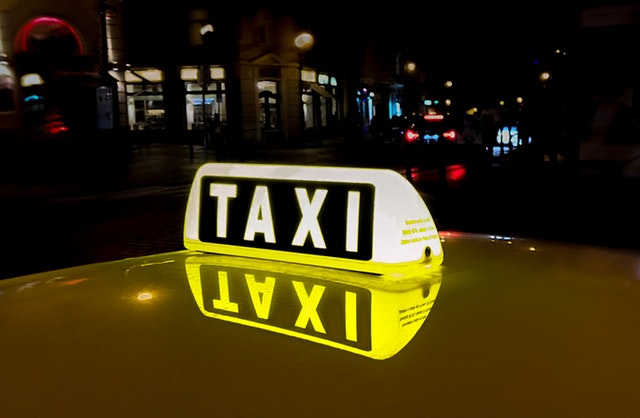Winter Safety Tips to Prevent Personal Injury

We can all agree – winter in British Columbia can be hard to forecast, difficult to prepare for and sometimes seemingly impossible to navigate when it finally hits.
Icy driving conditions, poor visibility and erratic driving on the road are a dangerous mix that can result in personal injury. However, there are steps you can take to mitigate these risks. We’ve taken some time to provide you with a list of best practices to keep yourself and your family as safe as possible on the road this winter.
Prepare Your Vehicle
Making sure your time on the road is as safe as possible requires not only a safe vehicle, but also safe driving practices and the right mindset in order to prepare you for any possible eventuality. Prior to starting your trip, you should always ensure that:
- You are well rested and have a clear head
- There are no unnecessary distractions either inside, or outside of your vehicle
- Your vehicle is up to date with any necessary regular maintenance, including tire rotations, brake checks and fluid checks
- There are both proper winter tires installed and proper windshield wipers installed for the expected weather
- You have a fully stocked roadside emergency kit, including a portable charger that can be used to power your mobile phone, a first aid kit, jumper cables, roadside flares, window scraper, flashlight, spare oil & coolant, sand and a tire change kit
Put Your Cellphone Down
 We all know the dangers of distracted driving. Did you know that every year, on average, 26 people are killed in distracted driving-related crashes in the Lower Mainland? This is a concerning number. The danger a distracted driver can put on themselves, their passenger and/or pedestrians is never worth responding to that text message or phone call.
We all know the dangers of distracted driving. Did you know that every year, on average, 26 people are killed in distracted driving-related crashes in the Lower Mainland? This is a concerning number. The danger a distracted driver can put on themselves, their passenger and/or pedestrians is never worth responding to that text message or phone call.
“Distracted driving results in more fatalities than impaired driving, and is also one of the leading contributors of crashes with pedestrians, cyclists and motorcyclists,“
– Lindsay Matthews, ICBC’s director responsible for road safety
Pre-plan before your drive. Ensure that your Bluetooth is enabled on your phone and your hands-free setting is in working order. These steps alone can lower your risk of distracted driving accidents — your focus should always be on the road.
Proper Car Insurance
Of course law requires car insurance in BC – however, rates and their benefits are continuously changing and so educating yourself on your options and insurance add-ons that will benefit you and your family is always a good idea. Talk to your insurance agent before the winter season to ensure you are signed up for the plan you need to keep you covered.
Map Out Your Driving Route (In Advance!)
With winter weather conditions come unexpected snowfalls, slippery streets, black ice and traffic congestion. Pre-plan your trip to prevent anxiety and frustration behind the wheel and to ensure that you arrive at your destination on time even though you’re driving slower due to winter conditions.
Update your GPS map and test it to ensure it’s in working order to assist you during your travels. A backup map is always a good idea for remote areas where GPS may not pick up an accurate reading.
Avoid Alcohol
It goes without saying, getting into your vehicle after drinking alcohol or taking narcotics is not only dangerous, but also irresponsible. With numerous holiday and work gatherings during the winter season, it’s important to take responsibility and plan ahead to prevent posing a danger to yourself and/or others.

Pre-plan your evening out and ask a friend or attendee to be a designated driver or ask a trusted family member to pick you up. Another option is to call a taxi – ensure you have easy access to a few local taxi numbers logged in your phone for easy and quick access.
Get the Solid, Trusted, Advice You Need
Tim Louis and his compassionate and talented legal team can give you the solid, trusted advice you need and can deal with ICBC on your behalf. If you or your loved one has been injured in a motor vehicle accident in Metro Vancouver and would like to consult with our legal team who will do everything they possibly can to get you the personal injury settlement you deserve, contact us today for a free consultation at 604-732-7678 or email timlouis@timlouislaw.com.
Source: https://www.icbc.com/about-icbc/newsroom/Pages/2017-Sept6.aspx




 When you are injured as a result of another driver’s negligence, you are entitled to
When you are injured as a result of another driver’s negligence, you are entitled to  In the case of ongoing injuries which require ongoing treatments, you are entitled to compensation for the present value of the future cost of those treatments or for the cost of assistance you require with homemaking expenses.
In the case of ongoing injuries which require ongoing treatments, you are entitled to compensation for the present value of the future cost of those treatments or for the cost of assistance you require with homemaking expenses.
 David Brooke is a personal injury lawyer who lives and works in Penticton, BC at his firm,
David Brooke is a personal injury lawyer who lives and works in Penticton, BC at his firm, 
 Starting a lawsuit against the party responsible for an accident is the beginning of what can be a lengthy journey. While most lawsuits end up settling out of court, it is very difficult — usually impossible — to get trial dollar settlements without a trial date on the horizon.
Starting a lawsuit against the party responsible for an accident is the beginning of what can be a lengthy journey. While most lawsuits end up settling out of court, it is very difficult — usually impossible — to get trial dollar settlements without a trial date on the horizon. So we have a trial date on the horizon. Any number of outcomes from the MVA can be your new reality, but the two most striking ones are polar opposites: You are either fully recovered or your doctor has advised you that you are not ever going to recover.
So we have a trial date on the horizon. Any number of outcomes from the MVA can be your new reality, but the two most striking ones are polar opposites: You are either fully recovered or your doctor has advised you that you are not ever going to recover. If your injury is permanent you will incur medical expenses after the trial, often for many years. Of course, you will not have receipts for these expenses at the trial itself. These medical expenses are sometimes referred to as Future Costs of Care.
If your injury is permanent you will incur medical expenses after the trial, often for many years. Of course, you will not have receipts for these expenses at the trial itself. These medical expenses are sometimes referred to as Future Costs of Care. In today’s world of
In today’s world of  Personal injury clients sometimes come to me with cases that don’t look winnable to them. There are usually one of two reasons for this. Either they know the car accident was not their fault but they don’t have any witnesses to support their version of what happened. Or, the injured client does have witnesses that can give evidence that the
Personal injury clients sometimes come to me with cases that don’t look winnable to them. There are usually one of two reasons for this. Either they know the car accident was not their fault but they don’t have any witnesses to support their version of what happened. Or, the injured client does have witnesses that can give evidence that the 


